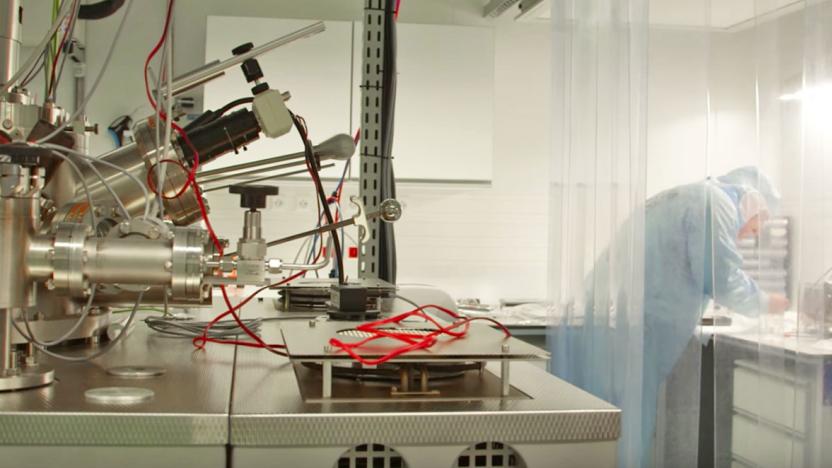nanocar
Latest

Prepare for the world's first nanocar race this month
Nanotechnology is fascinating, but for most people who aren't full-time chemists, it's a ridiculously dense field of study. An international team of scientists are trying to make nanotechnology more accessible to the public with the world's first nanocar race, scheduled to start on April 28th in the French city of Toulouse. Six teams hailing from three continents will gather at the Centre for Materials Elaboration and Structural Studies and attempt to jolt their custom nanocars across a polished gold track 100 nanometers in length (roughly one-thousandth the width of a human hair).

Researchers take nanocars out for an open-air test drive
Nanocars, those molecular-scale vehicles that might one day carry around tiny payloads, have been zipping around in vacuum environments for awhile now. But one breakthrough the nanocar researchers at Rice University have been searching for is the ability to operate these nanomachines in ambient, open environments.

Rice University rolls out new and improved "nanocar"
Nano-sized letters are one thing, but nothing impresses the nanotechnology community like creepy crawly nanotech, and some researchers from Rice University look to have fully delivered on that point with their latest so-called "nanocar." At about two nanometers in length, the new nanocar apparently doesn't represent a drastic reduction in size over the previous incarnation, but it does have the notable advantage of being able to "travel" across surfaces at room temperature (a temperature of 200° Celsius was required before). Interestingly, that breakthrough was actually discovered by accident, and was later able to be confirmed using a mix of time-lapse photography and a new tracking algorithm. As you might have guessed, however, they're still quite a ways away from being able to actually control the car, although the researchers say using six wheels instead of four could help with that, as could tracks to keep 'em going in one direction.[Via DailyTech]

